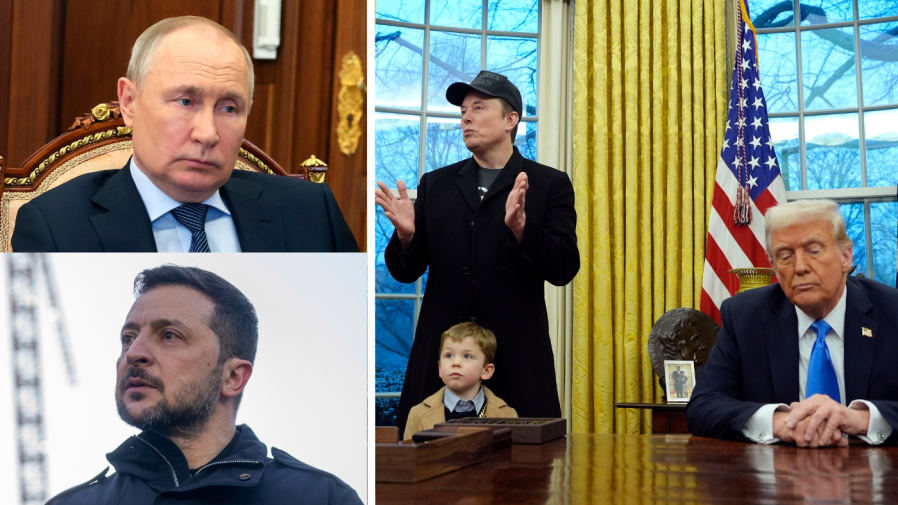Push for Ukraine-Russia Peace Deal Takes Center Stage
President Trump has announced that he and Russian President Vladimir Putin have agreed to begin negotiations aimed at ending the war in Ukraine. This marks a significant shift in U.S. policy, upending three years of the previous administration’s approach.
Key developments:
Trump and Putin held a lengthy phone call, committing to “work together closely” to end the conflict. Trump appointed Secretary of State Marco Rubio, CIA director John Ratcliffe, and others to lead negotiations. Ukrainian President Zelenskyy had a separate call with Trump, characterized as a “good conversation.”
However, questions remain about Ukraine’s role in the negotiations. When asked if Ukraine would be an equal participant, Trump gave a noncommittal response, calling it an “interesting question.”
European Allies Push for Inclusion
Seven European countries, including Britain, France, and Germany, have insisted on being part of any future negotiations on Ukraine’s fate. They emphasized that “Ukraine and Europe must be part of any negotiations” and called for strong security guarantees for Ukraine.
Potential Global Security Implications
Some experts warn that a “Putin-friendly” peace deal could have disastrous consequences for global security. Key concerns include:
Undermining the inviolability of international borders established after World War II. Discrediting nuclear disarmament efforts. Setting a dangerous precedent that could encourage future aggression.
Why This Matters
The outcome of these negotiations could have far-reaching implications beyond just Ukraine and Russia. At stake is the credibility of international treaties, nuclear non-proliferation efforts, and the broader global security architecture.
House Budget Negotiations Heat Up
As peace talks dominate foreign policy discussions, domestic politics are focused on budget negotiations, with a looming March 14 deadline to finalize FY 2025 appropriations.
Key points:
The House Budget Committee has advanced a resolution calling for $2 trillion in spending cuts. Potential cuts could impact Medicaid and other key health care programs. The proposal allows for up to $4.5 trillion in spending for tax cuts.
Senate Approach
The Senate Budget Committee has advanced a more modest resolution, authorizing $85.5 billion in spending per year, offset by corresponding cuts.
Potential Impact on Higher Education
The budget reconciliation process could have significant implications for higher education, including:
Potential steep tax increases on university endowments. New taxes on college scholarships. Elimination of critical student loan repayment options like SAVE.
Why This Matters
The outcome of these budget negotiations will have wide-ranging effects on government programs, from healthcare to education. The potential for automatic spending cuts if no agreement is reached adds urgency to the situation. As these stories continue to develop, it’s crucial to stay informed about both the international negotiations and domestic budget debates, as their outcomes will shape U.S. policy for years to come.









